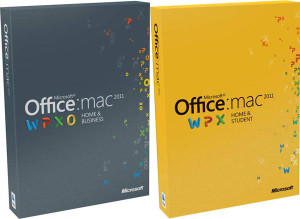System Center 2012 is Microsoft’s cloud-management suite. Microsoft currently offers two types of cloud management: private, in which it manages the cloud at the customers’ place; and public, in which the cloud is managed at Microsoft’s datacenters. Although earlier Microsoft sold the Cloud-management suite on the point-basis, so that the customer could choose one or more of the eight points of the suits. Microsoft is now set to sell the entire suite as a single bundle.

System Center 2012 comprises of eight point products. Earlier, customers could choose to opt for one or more products and were in no obligation to buy the entire suite. No longer. Microsoft is now offering the entire bundle as a single entity so that anyone who wishes to utilize the cloud-management suite will have to purchase all the eight point products. This may seem pricey to those customers who want to buy a limited set of products. So Microsoft plans to offer different incentives and deals to make the transition more easy for the customers.
Also, System Center 2012 will now be having two SKUs: ‘Standard’ and ‘Datacenter’. Both of these SKUs has the eight point products of the suite. The different between the two is that on the Standard SKU, only two Operating System Environments (physical/virtual machines) can be supported while on a ‘Datacenter’ SKU, unlimited number of OSEs can be supported.
Although Microsoft hasn’t yet given a definite date for the launch of System Center 2012, it is expected that the suite will be released by April, 2012 at the annual Microsoft Management Summit Conference.
Given below are the eight products that the suite comprises of and the changes that may be a part of them in the new version:
App Controller: App Controlled enables the user to deploy as well as manage multiple services and machines. It is a new feature that comes with the 2012 version.
Orchestrator: This party allows the user to add workflow automation as well as third-party integration.
Virtual Machine Manager: Want to add and manage hypervisors, not only Microsoft but also from other third parties? Virtual Machine Manager allows you to do that on SC 2012.
Configuration Manager: This helps with the overall security, enabling integration with System Center Endpoint Protection. This also acts as an anti-malware solution.
Service Manager: This enables the user to carry out different self-service management tasks and also incorporates two new features, datawarehousing and reporting.
Operations Manager: This product bring you Linux/Unix support and also customizable dashboard and app-performance management. You can also monitor the network through Operation Manager.
Data Protection Manager: This product has been updated to include two new features: role-based administration and item-level recovery of Virtual Machines.
EndPoint Protection: This is a new component of SC 2012 and includes the Forefront EndPoint Protection in the suite.
[ttjad keyword=”microsoft”]

![Read more about the article Download Mac OS X 10.6.7 Build 10J868[Developers Only]](https://thetechjournal.com/wp-content/uploads/2011/03/build-10J868-300x157.png)

